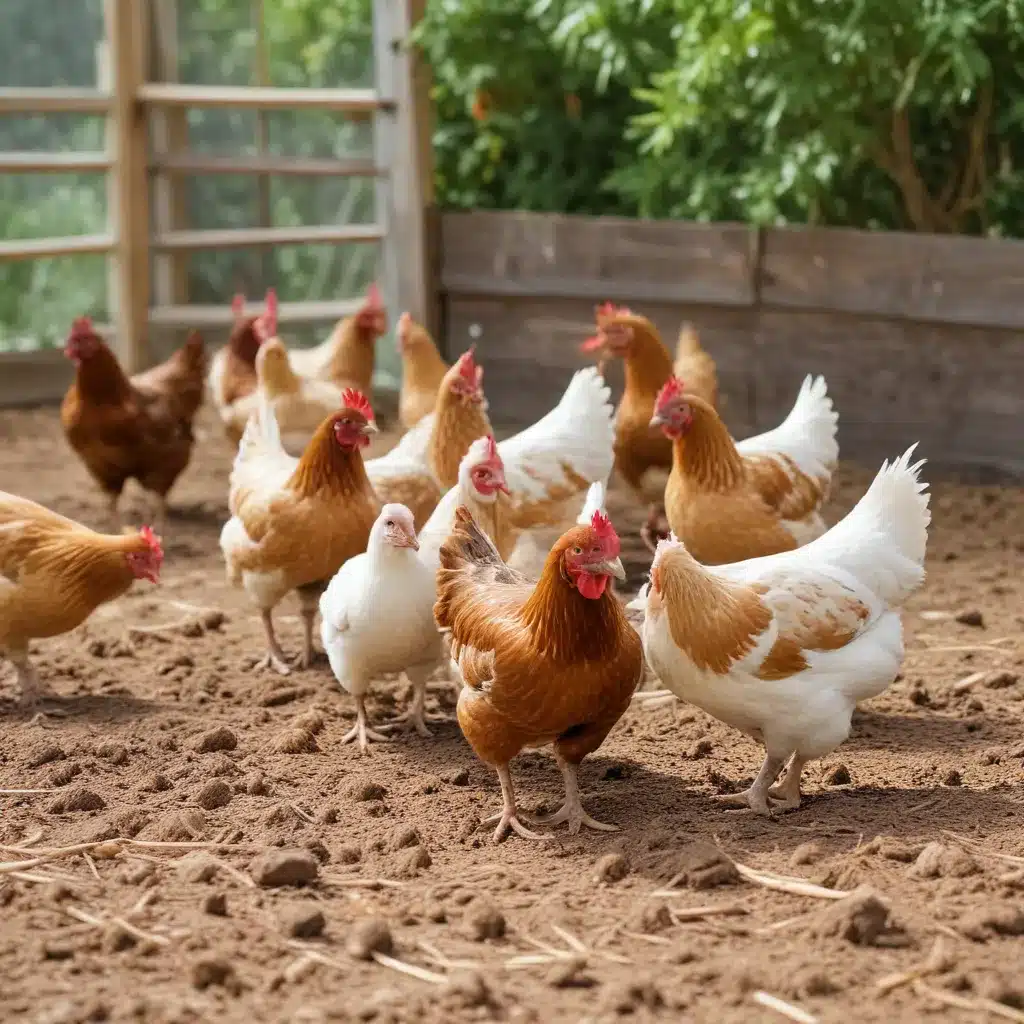
Raising backyard chickens can be an incredibly rewarding experience, providing your family with fresh, nutritious eggs while introducing your kids to the wonders of farm life. At Crooked Pines Farm, we’ve seen firsthand how chickens can enrich a home and teach valuable lessons about responsibility, sustainability, and our connection to the natural world. Whether you’re a seasoned chicken keeper or just starting out, this guide will share our top tips for maintaining a happy, healthy flock in your own backyard.
Backyard Chicken Basics
Chicken Breeds for the Backyard
When choosing your backyard chicken breeds, consider factors like egg production, temperament, and cold-hardiness. Some excellent options for small-scale chicken keeping include the friendly and productive Rhode Island Red, the beautiful and docile Australorp, and the hardy, winter-hardy Orpington. Do your research to select breeds that will thrive in your local climate and meet your family’s needs.
Housing Considerations for Backyard Chickens
Providing your chickens with a safe, comfortable, and well-ventilated coop is essential for their health and happiness. The coop should offer at least 2-3 square feet of space per bird, with nesting boxes, roosts, and a secure, predator-proof run for daytime foraging. Proper insulation, airflow, and regular cleaning will help prevent respiratory issues and other common chicken health problems.
Feeding and Watering Backyard Chickens
A balanced, nutritious diet is crucial for your chickens’ overall well-being and egg production. In addition to a high-quality commercial layer feed, you can supplement their diet with fresh greens, fruits, vegetables, and occasional treats like mealworms or scratch grains. Always ensure they have access to clean, fresh water, either through a nipple waterer or a deep bowl that’s cleaned regularly.
Chicken Coop Design and Construction
Essential Coop Features
When designing your chicken coop, be sure to include essential features like nesting boxes, roosting bars, and adequate ventilation. The coop should be predator-proof, with secure doors and windows, and provide protection from the elements. Consider incorporating amenities like a dust bath area, where your chickens can preen and maintain their feathers.
Coop Sizing and Layout
The size of your coop will depend on the number of chickens you plan to keep, but a good rule of thumb is to allow 4-5 square feet of space per bird inside the coop, plus an additional 10 square feet of run area per chicken. Arrange the layout to ensure your chickens have ample room to move around, with separate areas for nesting, roosting, and foraging.
Constructing the Chicken Coop
Building your own chicken coop can be a fun and rewarding DIY project. Start by selecting a durable, weather-resistant material like cedar or pressure-treated pine, and consider incorporating features like a hinged roof or removable walls for easy cleaning. Be sure to include plenty of ventilation, either through windows or strategically placed vents, to maintain a healthy, well-circulated environment for your flock.
Backyard Chicken Health and Welfare
Common Chicken Health Issues
Like any livestock, backyard chickens can be susceptible to various health problems, from parasites and respiratory infections to bumblefoot and egg-related issues. Regularly inspect your birds for signs of illness, and be prepared to quarantine or seek veterinary care if needed. Maintaining a clean coop, providing a balanced diet, and addressing stress factors can go a long way in preventing many common chicken health concerns.
Preventative Care Strategies
Proactive preventative care is key to keeping your backyard flock healthy and happy. Implement practices like regularly cleaning the coop, providing dust baths, and monitoring your chickens for any changes in behavior or appearance. Consult with a poultry-savvy veterinarian to discuss vaccination schedules and other preventative measures tailored to your specific flock.
Signs of a Healthy Chicken
A healthy chicken will have bright, clear eyes, a vibrant comb and wattle, and a clean, well-groomed appearance. They should be active, curious, and engaged with their surroundings, with a steady, even gait. Pay attention to your chickens’ eating, drinking, and egg-laying habits, as changes in these areas can signal an underlying health issue.
Managing the Backyard Chicken Flock
Introducing New Chickens
When adding new birds to your existing flock, take precautions to prevent the spread of illness and ensure a smooth integration. Quarantine any new arrivals for at least two weeks, monitoring them closely for signs of disease. Gradually introduce the new chickens to your established flock, allowing them to acclimate and establish a pecking order.
Brooding and Raising Chicks
If you choose to hatch your own chicks, you’ll need to provide a warm, well-ventilated brooder and carefully monitor their growth and development. Chicks have specific nutritional needs, requiring a starter feed high in protein to support their rapid growth. Gradually transition them to a layer feed as they mature, and be prepared to handle any health issues that may arise during the brooding process.
Egg Collection and Storage
One of the most rewarding aspects of keeping backyard chickens is collecting fresh, nutritious eggs. Gather eggs daily, storing them in the refrigerator and using them within 4-5 weeks for best quality and flavor. Provide your hens with a consistent, balanced diet, and you’ll be rewarded with beautifully colored, nutrient-dense eggs that will delight your family.
Raising backyard chickens can be a truly enriching experience, bringing your family closer to the natural world and providing a reliable source of wholesome, homegrown food. By following these tips and staying vigilant about your flock’s health and welfare, you’ll be well on your way to maintaining a happy, healthy, and productive backyard chicken flock. For more information and resources, be sure to visit Crooked Pines Farm – we’re always happy to share our passion for sustainable, small-scale agriculture.


